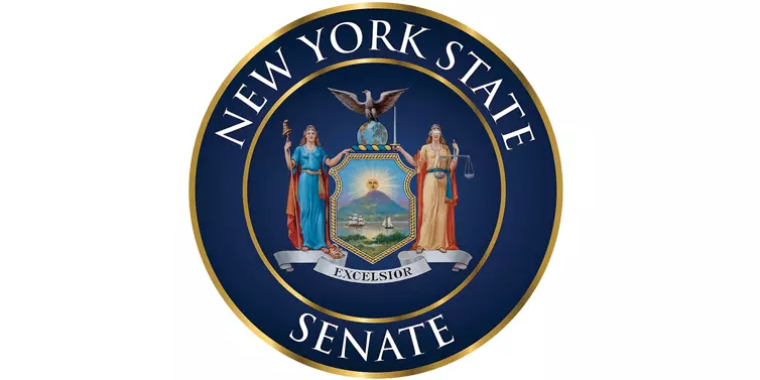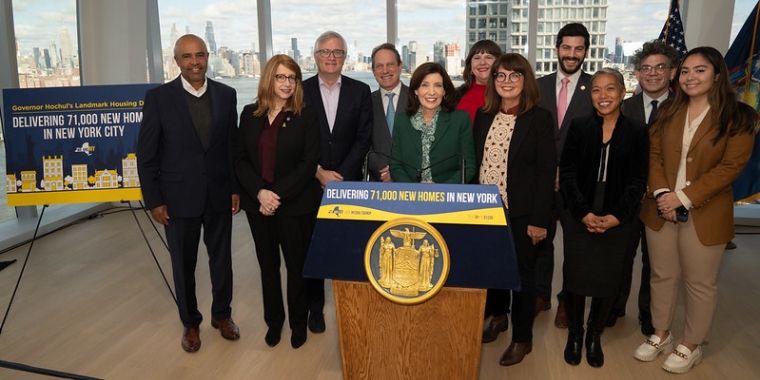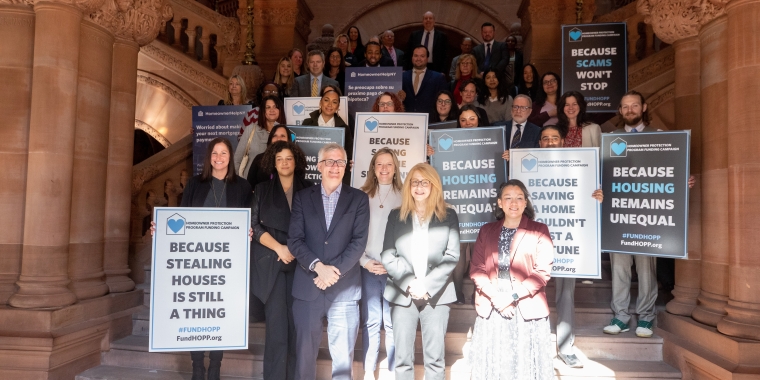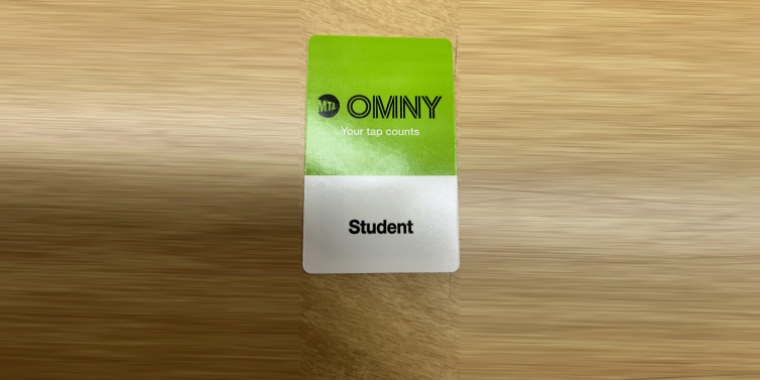
Senators Call for COVID-19 Federal Relief for State & Local Governments, Schools, Housing, Health & Safety Net Services
April 9, 2020

_______________
April 9, 2020
The Members of New York’s Congressional Delegation
United States House of Representatives
Washington, DC 20515
Dear Members of Congress,
Thank you for your leadership in these times of uncertainty and crisis. The first three relief and emergency aid packages have provided critical assistance to working families, health care systems, and small businesses. We are grateful for these steps as New York finds itself once again at ground zero in a national and global crisis. As state legislators, we are doing everything in our power to sustain New York’s robust response to this public health emergency. Like every state, however, New York does not have the resources to respond completely – only the federal government has the resources to fully sustain our state through the end of this crisis. In this spirit, we ask you to keep the following requests in mind as you consider a fourth phase of relief and emergency aid.
- Aid to States and Localities: Reasonable estimates suggest that New York State will experience at minimum a $10-$15 billion drop in revenue this year, and the cost to counties and the City of New York will also be huge. The phase 3 relief legislation opened many billions of dollars to critical industries; we strongly urge you to fight for a similar scale of assistance for state and local governments in phase 4. These funds should address both the continued response to COVID-19 (including robust testing) and provide direct monetary support for state and local governments to remain fiscally solvent in the wake of our economic freeze. One estimate from the Tax Policy Center suggests that a $250 billion aid package for state and local governments will be necessary. A fair portion of this funding must come to New York. This investment will enable the state to support local agencies and institutions serving the most vulnerable, first responders, and fair elections, among other things.
- Aid to Schools and Students: The CARES Act included $30.75 billion for educational stabilization funds to help K-12 and higher education institutions engaged in coronavirus- related activities and adaptation, which is a welcome first step. We urge you to advocate for an additional investment in phase 4 to sustain public schools that will be heavily drained by declining state budgets. We also urge you to fight for an investment in ensuring students have genuine access to high-speed internet for the duration of the current crisis by expanding access to hotspots and other technology to connect low-income students and those living in rural areas.
- Aid to Libraries and Cultural Institutions: The CARES Act contains moderate investments in the National Endowments for the Arts and Humanities, as well as funding for museums, but we urge you to provide significantly more support for public libraries and cultural institutions. In New York State, arts institutions from Broadway to the summer arts festivals across upstate generate more than $100 billion in economic activity annually. Libraries in every corner of the state offer one of the last genuine public spaces with a range of services, from internet connectivity to maker spaces, that are available to all. When we emerge from this crisis, we must ensure that our libraries and cultural institutions remain viable, especially those smaller institutions less likely to be able to weather this storm.
- Aid for Housing and Homelessness: Housing is currently the best defense we have against this virus, as it provides a safe space for individuals and families to self-isolate and help flatten the curve. While the eviction moratorium offers a temporary reprieve, constituents are inundating our offices daily to say they cannot afford their upcoming rent or mortgage payments. The Families First and CARES Acts included some funds specifically for housing. While we are still assessing how much funding will be available and how it may be used to ensure that New Yorkers are adequately housed during this crisis and in its aftermath, it is already clear that far more is needed. For renters, we need considerable additional funding for rental assistance for the hundreds of thousands of New Yorkers who are currently unable to pay their rent, and who will be unable to catch up after the eviction moratorium is lifted; NYS Senate bill S8140A provides a proposed template for allocating this funding. For homeowners, we urge you to make sure that forbearance does not turn into foreclosures by providing for the extension of mortgage terms equal to the length of forbearance rather than allowing all missed payments to become due once forbearance expires, and to extend mortgage protections to all mortgagees. For New Yorkers who are currently homeless, we must do everything we can to ensure that people living in public spaces are protected and have safe options for getting shelter, and we must expand and accelerate the provision of permanent housing for individuals and families living in shelters with congregate facilities that are especially unsuitable in a pandemic.
- Aid for Child Care and Child Welfare: Everyone agrees that our essential workers in this crisis deserve adequate child care options. The same should be true after the crisis is over. We urge you to include funding to provide free child care for essential workers during the crisis and to expand universal child care for all workers afterward. In addition, the closure of schools has heightened the challenge faced by many low-income families who rely on school meals to enhance their family’s nutrition. At the very least, the next phase of federal relief should pause the recent cuts to SNAP benefits.
- Aid for Substance Abuse Prevention and Recovery: New York State, like every state, has been rocked by substance abuse, especially the opioid crisis. We are concerned that a sustained period of isolation, general anxiety, and limited availability of routine medical and mental health care will increase substance abuse. We therefore urge you to invest immediately in new ways to deliver supportive services (such as enhanced tele-recovery programs, much as telehealth is being used to deliver mental health services) and to investin programs to help address substance abuse prevention and treatment in the wake of this crisis.
- Aid for Impacted Patients: We ask that future federal aid include coverage for COVID-19 treatment for those who are uninsured. Speaker Pelosi has advanced a proposal whereby uninsured people get coverage through Medicaid or the marketplaces, with additional coverage of COVID-19-related costs for those who still slip through the cracks. We wholeheartedly support that approach.
- Aid for the Social Safety Net: The temporary SNAP benefit increase enacted in the Great Recession was both critical to preventing far larger increases in poverty and effective as economic stimulus. We ask that you once again work to increase the value of SNAP benefits and to make Disaster SNAP available for many affected households. In addition, we ask you to include flexible funding for states to help very poor families with children, as Congress did in 2009-2010 with the TANF (Temporary Assistance for Needy Families) Emergency Fund. That fund provided resources to states to help more families meet basic needs and avoid emergencies that could put them on a downward spiral; it also provided subsidized jobs to both parents and young people to help them stay connected to the labor force. The next legislative package should include such an emergency fund, with its purposes broadened to respond to the needs of both poor families with children and other poor individuals and households
Thank you again for your tireless work on behalf of every New Yorker. We hope that you will consider these urgent concerns as Congress develops a phase 4 relief and emergency aid package. Significant investments will be necessary to support our states and localities, schools and students, and libraries and cultural institutions, and individual New Yorkers and their families during this crisis and to ensure their success when we turn the corner on this emergency. As always, we stand ready to provide any assistance we can on behalf of our constituents.
Sincerely,
Rachel May
Senator, 53rd District
Monica Martinez
Senator, 2nd District
Gustavo Rivera
Senator, 33rd District
Robert Jackson
Senator, 31st District
John Liu
Senator, 11th District
Luis R. Sepúlveda
Senator, 32nd District
Anna M. Kaplan
Senator, 7th District
Brad Hoylman
Senator, 27th District
Neil Breslin
Senator, 44th District
James Gaughran
Senator, 5th District
Alessandra Biaggi
Senator, 34th District
James Skoufis
Senator, 39th District
David Carlucci
Senator, 38th District
Roxanne Persaud
Senator, 19th District
Simcha Felder
Senator, 17th District
James L. Sanders, Jr.
Senator, 10th District
Brian Kavanagh
Senator, 26th District
Julia Salazar
Senator, 18th District
John T. Brooks
Senator, 8th District
Toby Ann Stavisky
Senator, 16th District
Zellnor Myrie
Senator, 20th District
Timothy M. Kennedy
Senator, 63rd District
Shelley Mayer
Senator, 37th District
Jen Metzger
Senator, 42nd District
Kevin Thomas
Senator, 6th District
Pete Harckham
Senator, 40th District
Liz Krueger
Senator, 28th District
Leroy Comrie
Senator, 14th District
Andrew Gounardes
Senator, 22nd District
cc: Senator Chuck Schumer
Senator Kirsten Gillibrand



